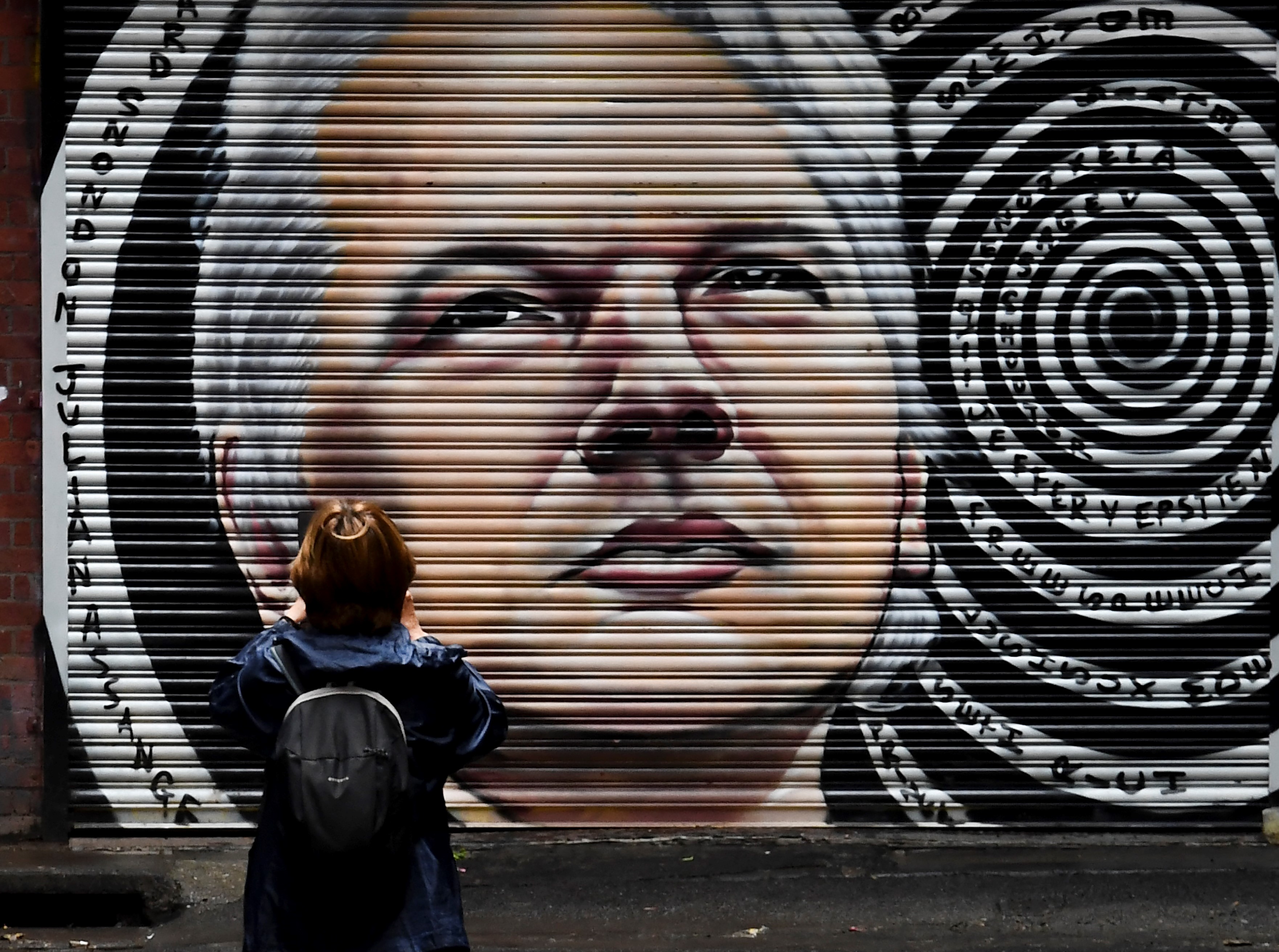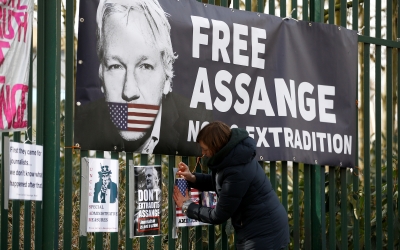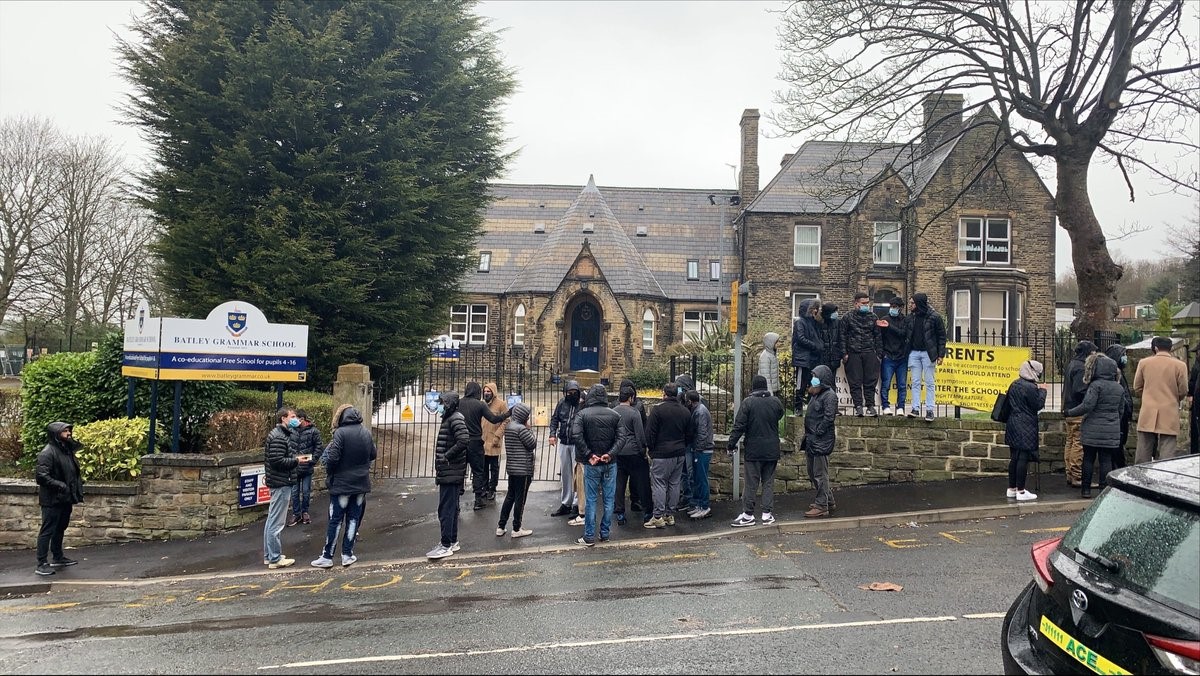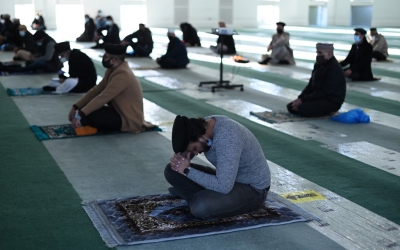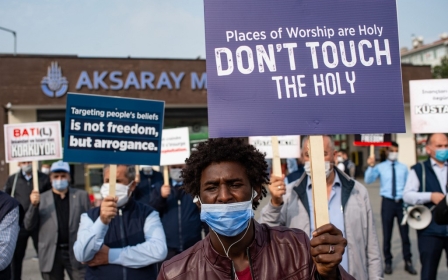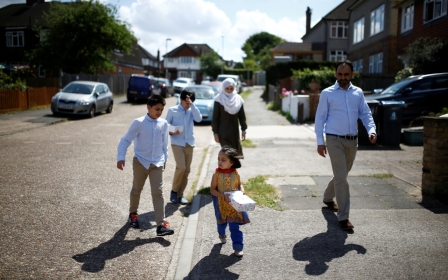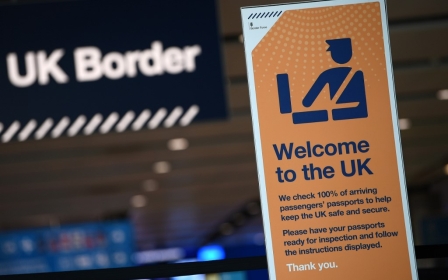Batley cartoon row: Media on a mission to provoke Boris Johnson's culture war
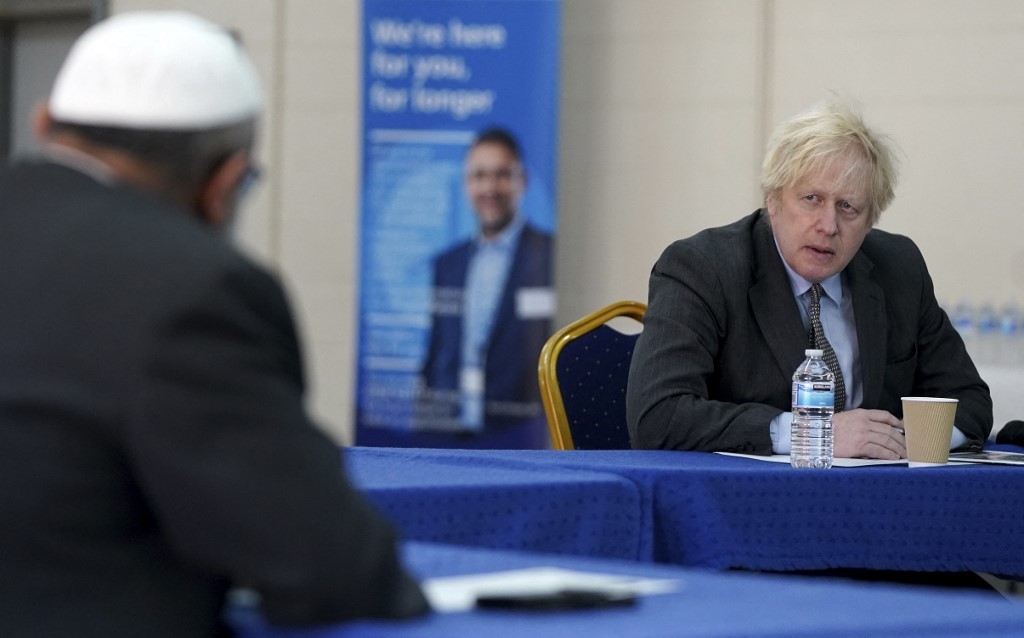
We've been here before many times. Too many times.
Under the pitiless gaze of an ignorant and often bigoted media, yet another moral panic is being drummed up against British Muslims. Unscrupulous ministers score cheap political points. Fractures in our already troubled society widen.
Worst of all, complex issues are being reduced to a simplistic analysis that does an injustice to our common humanity. This is another of the culture wars that British Prime Minister Boris Johnson loves to provoke.
The winners are fanatics on either side.
New MEE newsletter: Jerusalem Dispatch
Sign up to get the latest insights and analysis on Israel-Palestine, alongside Turkey Unpacked and other MEE newsletters
It was dangerous, irresponsible and wholly wrong to publish the name of the Batley teacher who showed his class images of the Prophet Muhammad - and criminal to threaten him. Meanwhile, this largely fabricated controversy plays into the hands of the far-right movements and think tanks which have poured so much time, effort and intellectual resource into the argument that there are irreconcilable tensions between the West and Islam.
Double standards
Let's take a step back. It has long been evident that there is an unspoken alliance between Muslim militants and Muslim bashers. Both assert that Islam and the West cannot coexist. This belief is false, as history repeatedly proves, but every time a row like this blows up it strengthens their case, with the mainstream media brutally airing their toxic talking points.
Batley and its aftermath has much less to do with free speech than British newspaper columnists have unanimously asserted
In this article I will explain why the Muslim parents who complained were probably (I use the word probably because it cannot be stressed too strongly that we do not know all the facts) entitled to do so.
I will provide evidence that the press coverage has been twisted to portray Batley Muslims as bigots at war with so "British values". But first I will show that Batley and its aftermath has much less to do with free speech than British newspaper columnists have unanimously asserted.
We never have had untrammelled free speech in Britain. Racist speech is illegal. So is hate speech and the incitement of violence. Decent people welcome these interdictions. Meanwhile, libel laws punish the publication of false and defamatory material. Generally speaking, these laws are only available to the very rich who abuse them to protect their reputation.
Nevertheless, it is hard to argue that libel laws should not exist.
Then there are the rules which protect the state. Britain and our allies have committed terrible crimes overseas, especially though not exclusively in Muslim countries. It is difficult, sometimes impossible, to get some of these crimes reported.
Bear in mind the fate which can await those who do - such as Julian Assange, who has been held in Belmarsh prison for two years and may yet die in jail. His crime: free speech.
As Millie Cooke and I reported here in the British Journalism Review, the British mainstream media – with rare exceptions - have downplayed or ignored the Assange case. Yet the United States' insistence that Assange should be extradited for reporting the truth about US war crimes is the most serious case involving free speech so far this century.
As far as I can discover (I will correct the record if I am wrong) not one of the writers and polemicists who have written so urgently for free speech in Batley have spoken up for Assange.
Not Mathew Syed. Not Matthew Parris, Fiyaz Mughal, Charles Moore, Joanna Rossiter, Kenan Malik. Nor Nick Timothy in the Telegraph. Nor any other among the large congregation of writers who have piled in against the school and the so-called Batley protesters in apparent defence of free speech.
I invite these influential writers, some of whom I greatly admire, to ask themselves whether they have been guilty of double standards. The attempted extradition of Assange is backed by massively powerful global interests including the might of the US and British governments, supported by the military and political establishment in both countries.
Don't forget that the majority of US crimes exposed by Assange – illegal incarceration in Guantanamo and elsewhere, massacres of unarmed civilians, torture – were carried out in Muslim countries.
Bear in mind that had these been carried out by a Muslim state against western citizens, these crimes would have been greeted by banner headlines and Assange would today be hailed as a hero. Remember that it's because we are talking about western assaults on Muslims, and not the other way around, that Julian Assange is a pariah and his revelations are suppressed.
The Batley affair
I now turn to the events at Batley. On 22 March, a religious studies teacher showed an image of the Prophet Muhammad during a discussion about blasphemy. The teacher is reported to have shown an image from French magazine Charlie Hebdo, but the actual image has not been released - and this report has not been confirmed by the school.
A better argument should be about the right to offend - and whether and when the right to free speech overrides the offence and emotional damage caused
There were protests outside the school last Thursday and Friday morning. The teacher has been suspended pending an investigation and is now in hiding. Most of these images have been described as "cartoons," yet cartoons are normally thought of as humorous.
There's nothing remotely humorous or funny about the images produced by Charlie Hebdo about the prophet. Like the Jyllands Posten Danish cartoons, they were targeted at Muslims and calculated to mock and insult. Any depiction of the prophet, revered by Muslims, is forbidden within Islam. It does not matter how respectful the portrayal. And these portraits were not respectful.
Was it necessary to display these images? The teacher could have discussed the issue without showing them.
We do not know exactly what was shown, or how the teacher framed the debate. But this is crucial to an understanding of what happened. Some commentators have presented the debate as an alternative between showing the image and observing blasphemy laws.
I have no knowledge at all of whether the teacher presented the issue in that way, although that is what most observers have assumed. If so, that is not a real debate in the context of a class discussion. Defence of free speech is legal. Enforcement of blasphemy laws is illegal since they were abolished in England and Wales in 2008 and more recently in Scotland. That leaves nothing to debate.
I suggest that a better argument should be about the right to offend - and whether and when the right to free speech overrides the offence and emotional damage caused.
The context matters
As always, this argument should be placed in context. We are talking of a class populated by 13- and 14-year-old children, many of whom are Muslim. Guidance is available for teachers handling delicate issues like this. In the course of preparation of this article, I have found it helpful to consult an information pack for teachers called Living with Controversy.
Others might care to do the same.
There is one other consideration which the well-paid and comfortable leader writers at the Telegraph and The Times might not have taken into account. Free speech does not exist for 13-year-old Muslim children in Batley. One phrase out of line in a discussion as sensitive as the Charlie Hebdo cartoons and a teacher might feel he had no choice but to report them under Prevent guidelines.
This means that if the teacher did present the issue as a "debate" between the law and an illegal act, rather than what is lawful and the benefits of self-restraint, he was putting pupils at risk. Once again there is no evidence that he did this, but that is what many of the media commentators rushing to his defence appear to assume.
Every article in the mainstream press - bar none - has made essentially the same argument. This case is about free speech versus bigotry.
Two categories of free speech
One thing worries me. We are talking about some of the poorest and least influential people in this country. British commentators pay a zero price for painting these people as bigots who pose an existential threat to our cherished western freedoms.
Episodes like this sometimes make me wonder whether there are in fact two separate categories of free speech. One for us, and one for Muslims
Episodes like this sometimes make me wonder whether there are in fact two separate categories of free speech. One for the rich and one for the poor. One for the powerful and one for the weak. One for us, and one for Muslims. This makes it significant that the only article I have found challenging the consensus was made outside the mainstream media in a self-published blog.
I had not come across the author, Jon Yates, before. He has a book about how to heal fractured societies being published this summer. Yates pointed out that Britain cheerfully accepts all kinds of interdictions on free speech, and nobody minds. He suggested we should all attempt a mental experiment and imagined that the teacher:
"Had brought in an article from the 1950s America about race relations. He had read it aloud without noticing that in the third and fifth paragraph was the n-word. He had not stopped but had read it out. He had then spent some time loudly discussing exactly how to pronounce the word... Or maybe he decided to act out Othello. To catch everyone's attention, he arrived in class in blackface."
He says that would have been deemed unacceptable. The headmaster would have apologised. The teacher would have been suspended while an investigation was carried out. And that is exactly what happened at Batley. The headmaster acted sensibly. He was not – to quote Brendan O'Neill in the Spectator – "buckling to religious extremists, cravenly begging for forgiveness for something that ought to be perfectly acceptable in an institute of learning".
The real mob?
Meanwhile, one man more than any other figure has come to embody the "angry Muslims" reportedly protesting outside Batley Grammar School. Attentive newspaper readers will be familiar with his turban, his full silver beard and mask. Photographs present him as the leader of the protests.
I tracked down him down. Mufti Mohammed Amin Pandor is a former civil servant. He told me that far from protesting, he was outside the school at the request of the police, who asked him to calm things down.
I checked. Here is video footage of him doing just that, stressing that "due process" should be observed.
Look carefully at the press photographs of Mohammed Pandor and you will see that in some of them the protesters are actually outnumbered by the press. Which was the real baying mob outside the school?
Was it the "angry Muslims" portrayed in British media reports? Or was it the British media on a mission to provoke Boris Johnson's latest culture war?
The views expressed in this article belong to the author and do not necessarily reflect the editorial policy of Middle East Eye.
Middle East Eye delivers independent and unrivalled coverage and analysis of the Middle East, North Africa and beyond. To learn more about republishing this content and the associated fees, please fill out this form. More about MEE can be found here.



